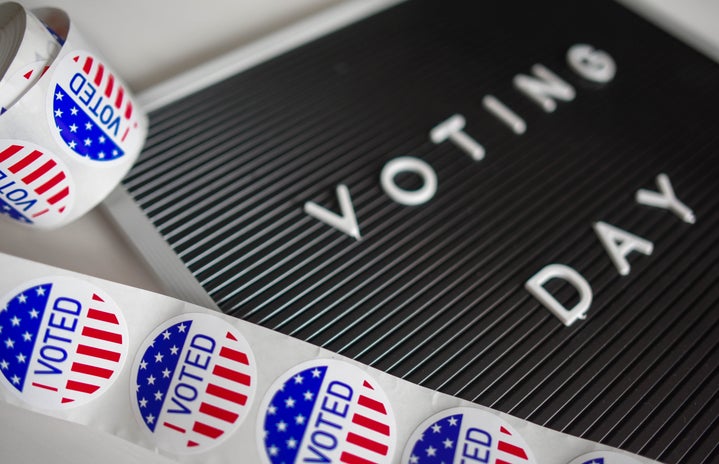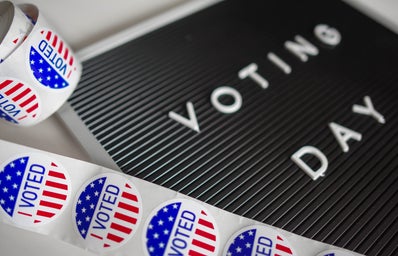If you’ve stepped one foot off-campus in recent weeks, I’m sure you’ve seen them. Those yard signs of either that dark blue or baby pink coloration, recommending you vote one of two ways, “Yes on 1” to “Fight Big Pharma!” or No to “Save Maine’s Children,” and, if you’re like me, you had no idea what they were talking about. Speaking honestly, I know that it might be out-of-place for me to discuss Maine politics as an out-of-stater, but my inability to vote in this state shouldn’t hinder my ability to contribute to the conversations of political participation among those of us who can cast a ballot! So, I took it upon myself to dig a little deeper to understand what exactly ‘1’ is and the outcome of either voting yes or no on it – because I imagine you’re just as curious as I am.
First of all, what is 1?
The only context given on these yard signs is that they’re advertising a vote on 1. But, what does that mean? 1 is referring to Question 1, also known as the “Religious and Philosophical Vaccinations Referendum,” which will be the only question on the ballot on March 3rd. What Question 1 asks is “Do you want to reject the new law that removes religious and philosophical exemptions to requiring immunizations against certain communicable diseases for students to attend schools and colleges and for employees of nursery schools and health care facilities?”
To put it simply, Question 1 is asking if you think children and students should be required to get vaccinated before going to school, and if those who work in daycares or health care facilities should be required to get vaccinated before going to work.
This ballot arises from a Maine law that was passed in May of last year that didn’t allow for religious or philosophical exemptions in regards to vaccinating students, nursery workers, and those who work in health care facilities. Question 1 is the veto of this law and calls for legitimacy for religious and philosophical exemptions to vaccines.
What does it mean to vote ‘yes’ or ‘no’?
Because of how wordy the initial question is (you should see the ballot), and the fact that you can only vote yes or no, it’s important to understand what they are really asking.
If you were to vote yes on Question 1, you would be saying that Maine should veto that law, making it legal for students, school faculty, nursery workers, and health care professionals to go to school or work without getting vaccinated prior, for either religious and philosophical reasons (i.e not for medical ones).
On the other hand, if you were to vote no, it would be a vote for keeping the initial law intact that was put in place in May, making it illegal for the aforementioned groups of people to opt-out of vaccines due to religious and philosophical reasons.
If you’re a Maine citizen and you are of legal voting age, be on the lookout on March 3rd for available voting locations to participate by getting your vote cast and having your voice heard! Despite some beliefs, voting is not only a super trendy and productive thing to do, but it’s your civic duty and responsibility – more importantly, it is your right! Voting in any kind of election or on any kind of ballot casting — whether that be the Democratic Primary coming up or more exclusively, state-wide elections such as the voting over Question 1 — is something that everyone who can do – should do, as it gives everyone who wants their voice heard, the power to change things in their government. Alternatively, such as in this case, it gives people the power to keep things as they were before, which can be equally as important when looking to the future long term. It’s important that all who can vote, do so because this ballot, in particular, will have a large effect on Maine as it will decide how Maine’s children and faculty in schools and health care facilities are treated and what standards are set for vaccination evasions moving forward.


